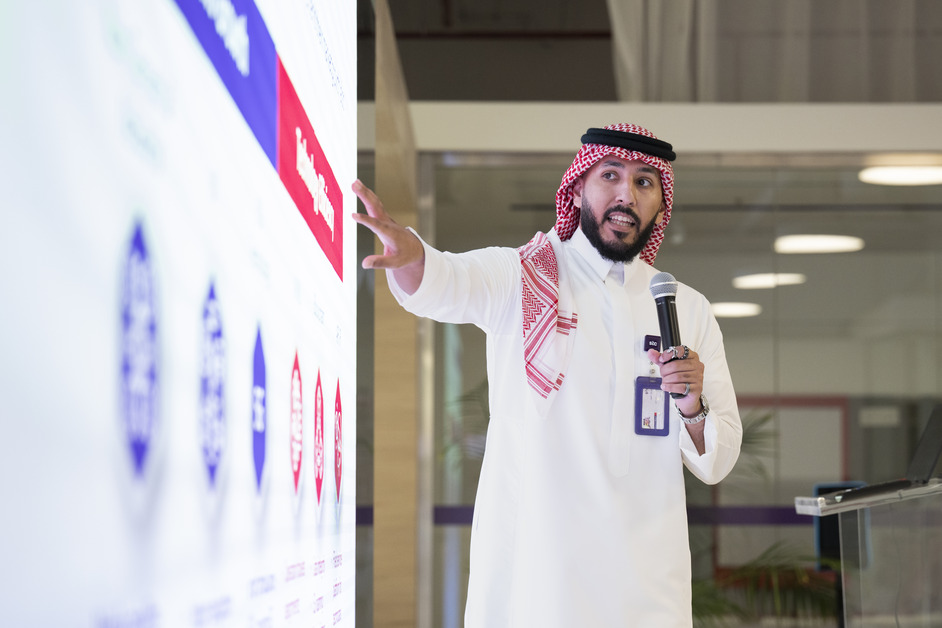
From Production to Building Minds
"I transitioned from the production sector at SABIC to the field of shaping minds, ideas, skills, and capabilities. Education is the cornerstone of this field, receiving continuous support from our wise leadership as a national priority and a key contributor to human development, meeting societal needs, and driving sustainable and comprehensive development. It is also one of the fundamental pillars of Vision 2030 and the Human Capability Development Program."
With these words, His Excellency Yousef Al-Benyan opened the panel discussion titled "The Transformation Journey in Education" during the Misk Global Forum 2024.
Education is a cornerstone of development, essential for any society seeking progress. In Saudi Arabia, the education sector is undergoing a major transformation in line with Vision 2030, focusing on enhancing quality and fostering continuous development. Within this framework, values and integrated collaboration among stakeholders are crucial in establishing an effective and future-ready learning environment.
Values and Integrated Collaboration: Shaping the Future of Education
His Excellency emphasized:
"The most critical element in education today is strengthening the system of values, which forms the foundation of success. Additionally, success comes through integrated collaboration, where each sector plays an essential role. When efforts across different sectors are aligned and driven by core values, we not only improve education but also lay a strong foundation for sustainable development."
Continuous Development: The Path to an Innovative Learning Environment
By adopting modern teaching methodologies, improving training methods, and fostering essential skills, Saudi Arabia is creating an education system that equips students with the tools they need to become future leaders. However, this transformation requires genuine commitment from all stakeholders to drive meaningful and lasting change.
His Excellency stated:
"Education in the Kingdom today is not just focused on knowledge acquisition. With the establishment of the National Curriculum Center, curricula are now knowledge-based, skills-oriented, and value-driven. Furthermore, education now prioritizes skills development from early childhood (ages 3–6), aiming to cultivate an innovative and competitive generation by 2030, aligned with the demands of the public, private, and nonprofit sectors."
Collaboration Among Stakeholders: Building a Holistic Educational Ecosystem
The success of education reform depends on collaboration between schools, teachers, families, and the community. Each stakeholder plays a vital role in improving education, and real success is only possible when all efforts are aligned. This shared responsibility strengthens the effectiveness of the education system, creating an environment that fosters both personal and societal growth.
In addition, respecting time and fostering teamwork are fundamental values that contribute to any collective endeavor, especially in education. Learning is not solely the responsibility of teachers—it is a shared effort that involves families, educators, and the community. When everyone works towards a common goal, the likelihood of success increases significantly.
By developing critical thinking, creativity, and innovation, while upholding professional values and integrated collaboration, Saudi Arabia is creating a flexible, future-ready education system that aligns with Vision 2030’s aspirations.
Promising Investment Opportunities in the Education Sector
The Minister of Education outlined key investment opportunities in the education sector, emphasizing the Ministry’s commitment to fostering partnerships with the private sector and investors in private education while encouraging greater investment in this field. These opportunities span several areas, including:
Building the Future Through Education
Today, we have the ability to shape the future through our values and actions. Every decision we make reflects a new vision for a more prosperous and sustainable world. By reinforcing core values and fostering integrated collaboration, we can build an innovative educational environment that meets the aspirations of future generations.
In conclusion, His Excellency Yousef Al-Benyan emphasized:
"The importance of upholding values and humility, committing to lifelong learning as part of an ongoing development journey, and adhering to professional work ethics as one of the pillars for achieving sustainability and professional growth, alongside looking to the future with optimism and confidence."